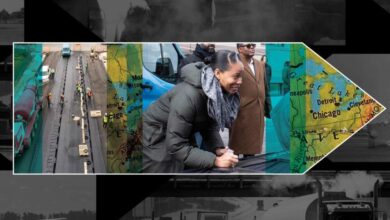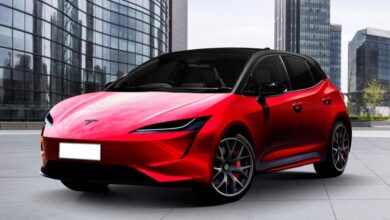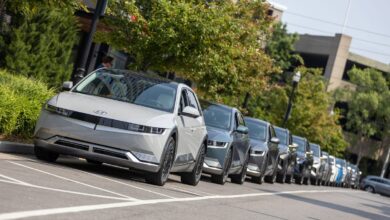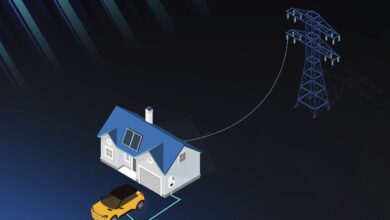Biden initiatives bring 11,000 new electric vehicle jobs to Arizona
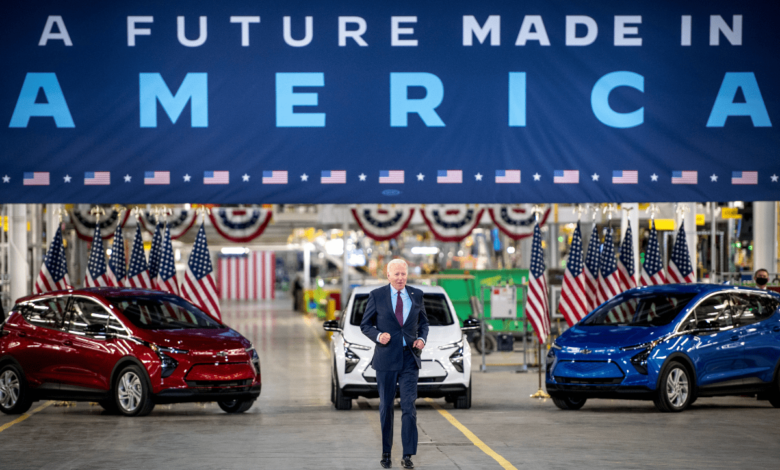
Need a good job?
You could train for one of 11,000 new electric car jobs coming soon to Arizona.
Arizona’s electric vehicle industry is exploding thanks to more than $11 billion in tax breaks and investments triggered by President Joe Biden’s Inflation Reduction Act (IRA) and Bipartisan Infrastructure Law (BIL).
“Detroit is the Motor City; Arizona is now Electric City,” said Mark Scalpone, founder of Vintage Iron and Restoration in Scottsdale.
EV workers needed
As a result, companies are crying out for technicians to work in new electric car and battery factories, build 25,000 new charging stations funded by the IRA, and service existing EVs.
“We have this huge deficit of people who know how to work on EVs—and a growing number of these cars on the highway,” said Baily Soto at Legacy EV, which trains EV technicians.
Soto, Legacy EV’s curriculum specialist, says the Tempe-based company has already trained more than 100 students at their “Five-Day EV Fundamentals Boot Camp,” and 250 more online.
The company will be part of the effort to train new workers for companies like KORE Power, which plans to hire 1250 people at its new battery plant in Buckeye as a result of IRA-related investments.
“If I can do it …”
It’s easier to learn about EVs than many people think, Soto said.
“Mechanics know the ins and outs of a combustion engine,” she said. “When they take out an alternator and put in a DC/DC converter, they see the EV analog to what they already know.”
Legacy EV graduate Logan Necochea agreed, saying his traditional car experience had “translated to EVs pretty well.”
“I was leery at first,” said Necochea, a technician at Vintage Iron and Restoration. “I’m excited to be doing it now.”
Julio Pereyda, owner of Glee Auto in Tempe, felt the same way.
“I was really nervous coming in,” he said. “I’m 37 years old, so learning something new was intimidating, [but] they made it simple.
“If I can do it, anyone can.”
Who gets these jobs?
Along with training mid-career mechanics in new skills, Legacy EV is creating curricula for younger people in tech schools, community colleges, and high schools. Their first school is Hope Academy, a reentry school helping troubled young people graduate or get into the workforce.
“I’ve been surprised by the number of young people who are interested in EVs,” Soto said. “Cars for them have become tech, they’ve become a cool toy.” Building on that interest, the company has designed portable school curricula that teach STEM (science, technology, engineering, and math) in grades K–12.
The Inflation Reduction Act has made these classes more accessible. “We’re so excited by the number of schools telling us ‘we finally have the funding for EV training,’” Soto said.
“Last year, no institutions had money for EV classes,” she said. “Now they do.”
As funding for electric vehicle training grows, so does the need for teachers. Legacy EV hired several new sales and teaching staff, and Gateway Community College is looking to hire a new senior instructor for its electric vehicles training program.
American jobs
“Arizona is one of the top five states for H1-B visas, particularly for EV value chain jobs,” Soto observed. The lack of trained EV specialists means the state has to import skilled EV technicians from other countries.
“We’re hyper-focused on getting local people trained for those jobs,” she said.
As a result, Legacy EV has created an “EV 101” course to create a pipeline into the workforce from junior colleges, tech schools, and high schools.
Along with training today’s workers, she said, we need to “set up the future generations for success in this industry, because it’s not the Big Three any more.”
To that end, they want “a STEM-focused pipeline” in K–12. “The new version of people working on cars will be students in after-school robotics lessons and in-class lessons in engineering to start creating the next generation of EV technicians.”
That, she said, will “ensure that the tradition of highly qualified mechanics and car builders lives on for generations to come.”
